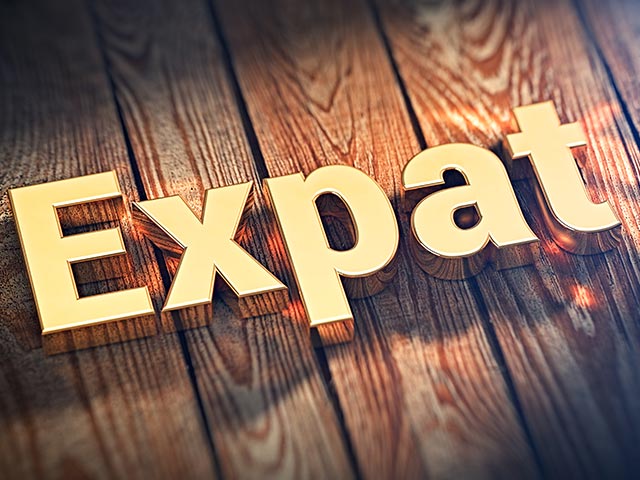
At International Documents Canada we specialize in navigating the Canadian document authentication and legalization process for our clients, including Canadian expats living all around the world. If you are a Canadian expat and you have questions about the document authentication and legalization process, this article is for you.
Why do I need to authenticate and legalize my documents?
The document authentication and legalization process is used when you need to have Canadian documents officially recognized in another country. The document authentication and legalization process is focused on proving the validity of the signatures associated with your document, as a way of certifying the authenticity of this document. For Canadian expats, it can often be necessary to authenticate and legalize important documents from Canada such as educational diplomas and transcripts, birth and marriage certificates, and criminal record checks.
Apostille and the Canadian document authentication and legalization process
The term “apostille” is used in many parts of the world to describe the process of certifying the authenticity of a document for use in another country. However, because Canada is not a signatory to the Hague Apostille Convention, Canada does not apostille documents. Instead, the equivalent Canadian process is called document authentication and legalization. So for all you Canadian expats living in a country that requires apostilles on foreign documents, what you will actually be doing is authenticating and legalizing these documents. Click here for more on Canada and the Hague Apostille Convention.
About the document authentication and legalization process
The Canadian document authentication and legalization process involves three steps:
Step 1 – Preparing your documents for processing. This preparation can involve having documents notarized by a notary public or lawyer, having a certified true copy made, having translations made, and providing various supporting documents.
Step 2 – Authentication at Global Affairs Canada. Once your documents have been prepared, the next step is to submit them to the JLAC section of Global Affairs Canada. The JLAC section is located in Ottawa. The JLAC staff will review your documents to make sure they meet their requirements. If satisfied, they will place a large red stamp directly on your documents, confirming that they have been authenticated.
Step 3 – Legalization at the embassy or consulate of the country in which you will be presenting your documents. The consulate staff will first confirm that your documents have been authenticated by Global Affairs Canada, and that these documents meet the specific requirements set by this embassy or consulate. If satisfied that your documents meet all requirements, they will place a stamp or sticker directly on your documents, confirming that they have now been legalized.
Document authentication and legalization for Canadian expats – tips and tricks
We manage the document authentication and legalization process for Canadian expats every day. Here is a short list of tips and tricks our experts have put together for Canadians living abroad:
- Think about whether your documents need to be translated. If your documents are in a language other than English or French, they will need to be translated into one of these languages by a certified translator before Global Affairs Canada will authenticate the foreign language originals. In addition, some embassies require that documents be translated into their national language before being legalized. Finally, sometimes you will be asked to provide a translation by whoever is requesting your documents.
- For Canadian expats that need to obtain a criminal record check, there are companies that can provide fingerprinting solutions overseas. If you need assistance locating an accredited fingerprinting agency, we can provide some recommendations. If we are handling the authentication and legalization process for you, it can save a lot of time to have your criminal record check sent directly to our office.
- Our experts can save you weeks of processing time by managing all aspects of the authentication and legalization process on your behalf. Using our services makes sense if you need your documents processed quickly, if you don’t have the time to research and manage the process yourself, if the security of your documents is important, or if you just don’t want the hassle and aggravation. We’ll help you prepare your documents correctly. You send them to our Ottawa office. We then manage all aspects of the authentication and legalization process on your behalf.
- Assistance is available if you need to obtain various documents in Canada. For some documents, such as divorce certificates, we can take care of obtaining the documents for you. You will need to order some other types of documents yourself, such as marriage, birth and death certificates, but we’ll show you how. Again, if we are handling the authentication and legalization process for you, it will save time to have these documents sent directly to our Ottawa office.
- If you are handling the authentication and legalization process yourself, make sure you have the right information before you start. Each embassy and consulate sets its own unique requirements for the document legalization process. Your documents will also have to meet the requirements set by Global Affairs Canada.
Where can I find more information on the document authentication and legalization process?
Our website has a wealth of information on the Canadian authentication and legalization process and is a great place to start. Global Affairs Canada has information online on the authentication portion of the process. The web page of the relevant embassy or consulate is always worth checking for information about their legalization requirements. Even better, we invite you to call our experts to discuss your particular situation. We’ll answer your questions and clearly explain your options – no pressure and no obligation. Call us toll-free at 1-888-433-1011 or send us a quick form and we’ll get right back to you.
